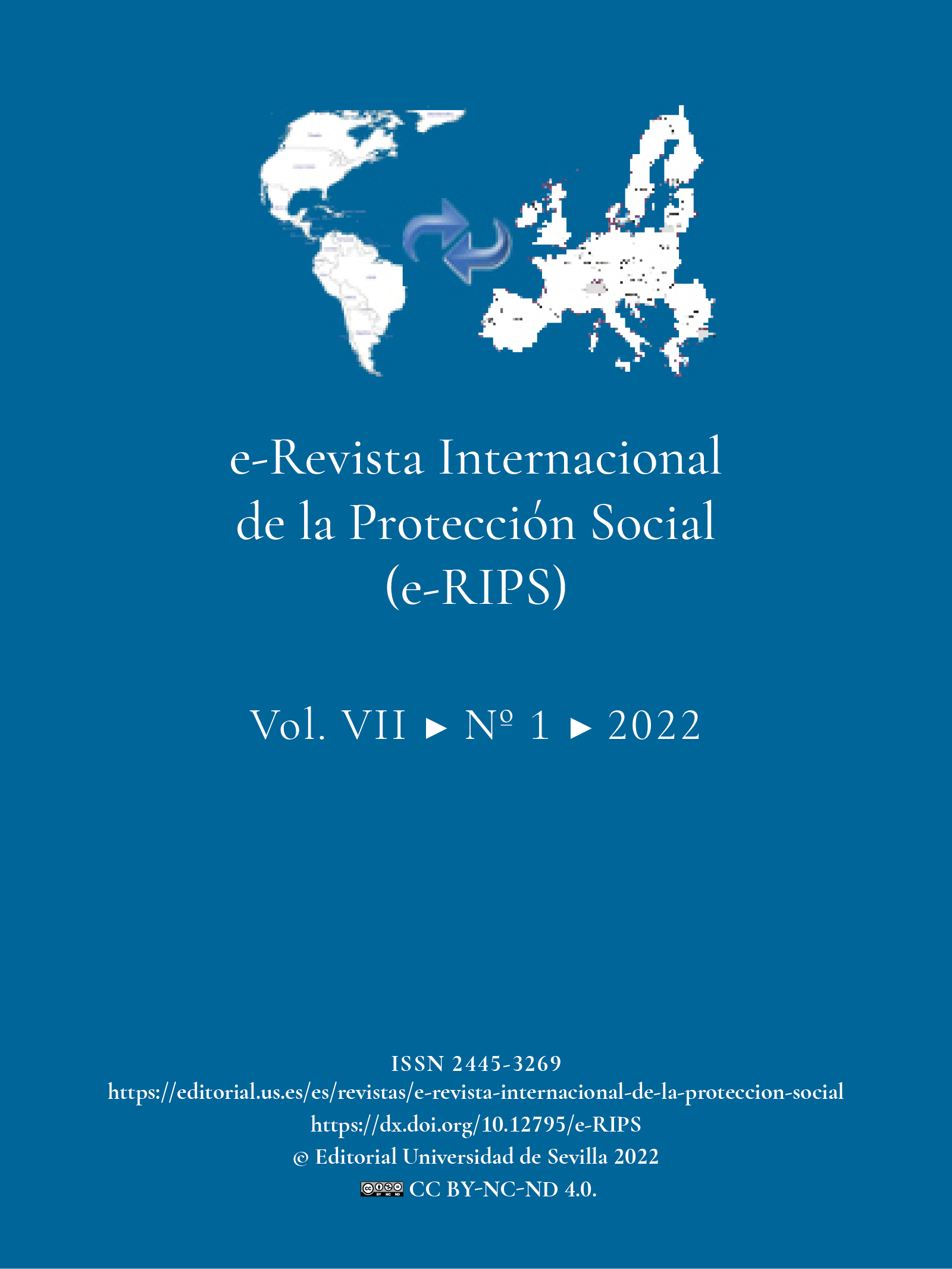The case of Maya Forstater in the UK: A Worker’s Freedom of Belief in Social Networking
DOI:
https://doi.org/10.12795/e-RIPS.2022.i01.07Keywords:
gender critical, freedom of expression, freedom of belief, social networksAbstract
The company CGD did not renew the contract of employee Maya Forstater after accusing her of having made “offensive and exclusionary tweets towards trans people” from her personal Twitter account, in the context of a debate on a legislative proposal. Forstater sued CGD for terminating her employment because of her philosophical views. The courts considered whether Forstater’s views met the criteria set out in Grainger v Nicholson [2010] ICR 360 (“Grainger V”). These criteria are considered the jurisprudential test in the UK for assessing whether a belief (or idea) should be protected. The Court of Appeal found that “gender critical” ideas should be protected from dismissal as a legitimate manifestation of free speech. A worrying aspect of this case is the increasing corporate control over the activity of workers on social networks.
Downloads
References
Andrews, P.: “This is hate, not debate”, Index on censorship, vol. 50, núm. 2, 2021.
Aránguez Sánchez, T.: “La introducción de los conceptos interseccionalidad y discriminación múltiple en el sistema jurídico. Fricciones con los derechos de las mujeres”, en Rodríguez Magda, R. M. (coord.): El sexo en disputa. De la necesaria recuperación jurídica de un concepto, Centro de Estudios Políticos y Constitucionales, Madrid, 2021.
Delaney, A.: “Social networking-what about privacy and expression?”, Employment Law Bulletin, 104, 2011.
Equal Treatment Bench Book, Judicial College Publications, London, 2021.
Fernández, R.: “La libertad de expresión en las redes sociales: funcionalidad de los derechos clásicos ante las nuevas realidades tecnológicas (Comentario a la Sentencia del Tribunal Europeo de Derechos Humanos 35786/19, de 15 de junio de 2021, caso Melike contra Turquía)”, Revista Crítica de Relaciones de Trabajo, Laborum, núm. 1, 2021.
Fraser, N., y Honneth, A.: ¿Redistribución o reconocimiento?, Morata, Madrid, 2006.
Goñi Sein, J. L.: El respeto a la esfera privada del trabajador, Civitas, Madrid, 1988.
Honneth, A.: “Integridad y desprecio. Motivos básicos de una concepción de la moral desde la teoría del reconocimiento”, Isegoría: Revista de Filosofía Moral y Política, núm. 5, 1992.
López Balaguer, M.: “Libertad de expresión y redes sociales: ¿es posible sancionar al trabajador por publicaciones de contenido privado ajenas al trabajo?”, Temas Laborales, núm. 146, 2019.
Núñez Aboitiz, V.: “Uso extralaboral de nuevas tecnologías de internet: efectos sobre la relación laboral”, Relaciones Laborales, núm. 13-14.
Ochoa Ruiz, N.: “Tribunal Europeo de Derechos Humanos: Asunto “Stern Taulats y Roura Capellera” c. España, demandas nº 51168/15 y 51186/15, sentencia de 13 de marzo de 2018”, Revista Aranzadi Doctrinal, núm. 6, 2019.
Rodríguez Escanciano, S.: “El poder de control empresarial en un contexto productivo tecnológicamente avanzado”, en AA.VV.: Descentralización productiva y transformaciones del Derecho del Trabajo, Tirant lo Blanch, Valencia, 2018.
Sala Franco, T.: “El derecho a la intimidad y a la propia imagen y las nuevas tecnologías de control laboral”, en AA.VV.: Trabajo y libertades públicas, Civitas, Madrid, 1999.
Stock, K.: Material Girls: Why Reality Matters for Feminism, Fleet, London, 2021.
Stock, K.: “What is a woman?”, Index on Censorship, Vol. 50, núm. 2, 2021.
Taylor, C.: El multiculturalismo y “la política del reconocimiento”, Fondo de Cultura Económica México D.F., 2003.
Published
How to Cite
Issue
Section
License
Authors being published in this journal agree to the following terms:
- Authors retain their copyright and they will guarantee to the journal the right of first publication of their work, which will be simultaneously subject to license recognition by Attribution-NonCommercial-ShareAlike (CC BY-NC-SA 4.0 DEED)
that allows others to share such work provided that the author’s name and his first publication in the e-International Review on Social Protection is stated. - Authors may take other non-exclusive distribution license agreements version of the published work (e.g. deposit in an institutional digital file or publication in a monographic volume) provided that the initial publication in this journal is stated.
- Authors are allowed and encouraged to disseminate their work via the Internet (e.g. in institutional digital files or on their website) prior to and during the submission process, which can lead to interesting exchanges and to increase citation of the published work.











